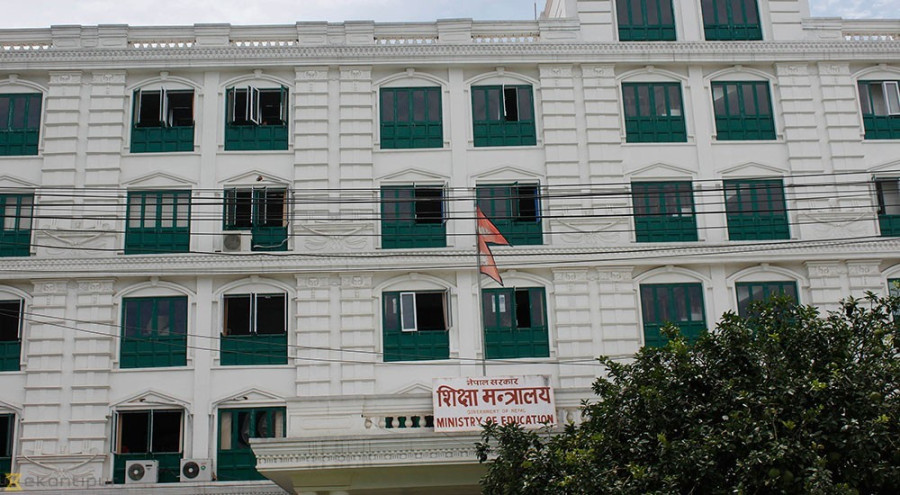National
Kathmandu’s allocation of teacher quotas enrages local governments
Many schools in rural areas have a lower teacher-student ratio while urban schools have a higher number of teachers per student.
Binod Ghimire
Local governments have expressed reservations over the decision of the federal Education Ministry to allocate teacher quotas on the grounds that the number allocated is far below their needs.
Following a revision of the positions of teachers in the 753 local federal units across the country, the Centre for Education and Human Resource Development on Tuesday said that the number of teachers for three levels—primary, lower secondary and secondary—have been distributed to manage the teachers in proportion to the number of students.
When complaints were filed that there was an uneven distribution of teachers, the government decided to revise the numbers after calculating student strength in the respective local governments. Many schools, mainly in the Tarai, have a lower teacher to student ratio while others, particularly in urban areas, have a disproportionately high number of teachers. In some public schools, student enrolment has gone down so much that the number of teachers is higher than their wards.
A study by the task force formed to revise the quotas of teachers showed there were no positions for permanent teachers in the primary and lower-secondary levels in 2,554 public schools, while 504 public schools lacked the permanent posting of secondary teachers.
Bhim Prasad Dhungana, general secretary of the Municipal Association of Nepal, said while the relocation of the positions was necessary, the federal government didn’t do proper homework before distributing the quotas. Dhungana, who is also a mayor at Neelkantha Municipality in Dhading, said while student enrolment has gone up in his local unit, teachers’ allocation has decreased.
“The federal government’s allocation is unscientific which will only increase the problems of the local government,” Dhungana told the Post. “I urge revisiting the decision.”
Officials from other local governments say they also have a similar experience and have asked the federal government to allocate teachers from the pool.
Tika Ram Sharma, education officer at Debdaha Municipacipality in Rupandehi, said they lack adequate teachers at all levels. “However, we hope the problem won’t last too long because we have requested for teachers from the pool,” he said.
Teacher management has become a contentious issue for the federal and local governments because officials in Kathmandu don’t want to give up their authority even though the constitution authorises local governments to manage the entire school education.




 14.24°C Kathmandu
14.24°C Kathmandu















